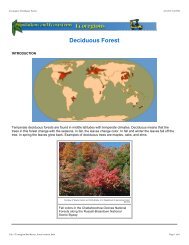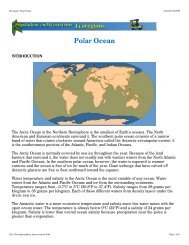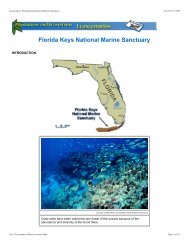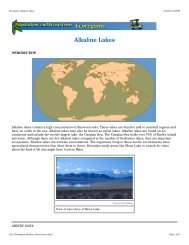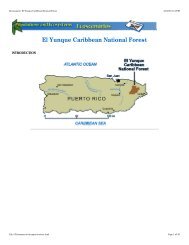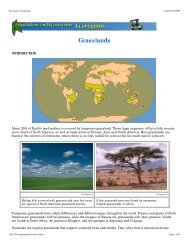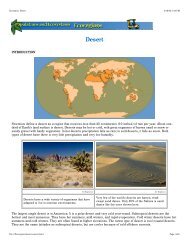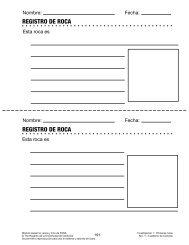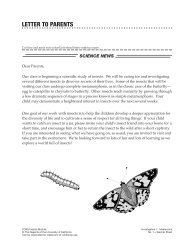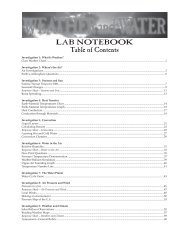Ecoscenarios Combined - FOSSweb
Ecoscenarios Combined - FOSSweb
Ecoscenarios Combined - FOSSweb
Create successful ePaper yourself
Turn your PDF publications into a flip-book with our unique Google optimized e-Paper software.
Ecoscenario: El Yunque Caribbean National Forest<br />
4/16/03 3:14 PM<br />
Courtesy ofFather Alejandro Sánchez<br />
Coqui frogs climb up into trees at night, looking<br />
for food and mates. They jump back to the forest<br />
floor rather than climb down.<br />
Centipedes forage for prey on the forest floor.<br />
Courtesy ofFather Alejandro Sánchez<br />
The tallest trees make up the emergent layer, which rises above the dense canopy of shorter trees. These trees<br />
take advantage of increased air circulation and rely on wind pollination and winged seeds for seed dispersal. Thick,<br />
waxy leaves reduce the amount of water released through transpiration in the hot tropical sun.<br />
Each layer of the rain forest is characterized by a community of organisms and distinct food webs. Some animal<br />
populations do not move beyond the layer they live in. There are more than 200 species of birds found in Puerto<br />
Rico and many more species of insects and invertebrates.<br />
Invertebrates are especially diverse and numerous at El Yunque. Ants, beetles, butterflies, termites, spiders, and<br />
many other types of invertebrates are found in every forest layer. The climate is warm and moist enough for reptiles<br />
and amphibians such as the coqui frog, anoles, and geckos. Historical records show 22 kinds of mammals in<br />
Puerto Rico. While many still live in Puerto Rico today, such as the Jamaican fruit bat, many of the native species<br />
have disappeared, and nonnative mammals, such as rats and mongooses, are there instead. The larger predators<br />
include red-tailed hawks, tarantulas, and centipedes.<br />
file:///Ecoscenario/elyunque/content.html<br />
Page 8 of 16



